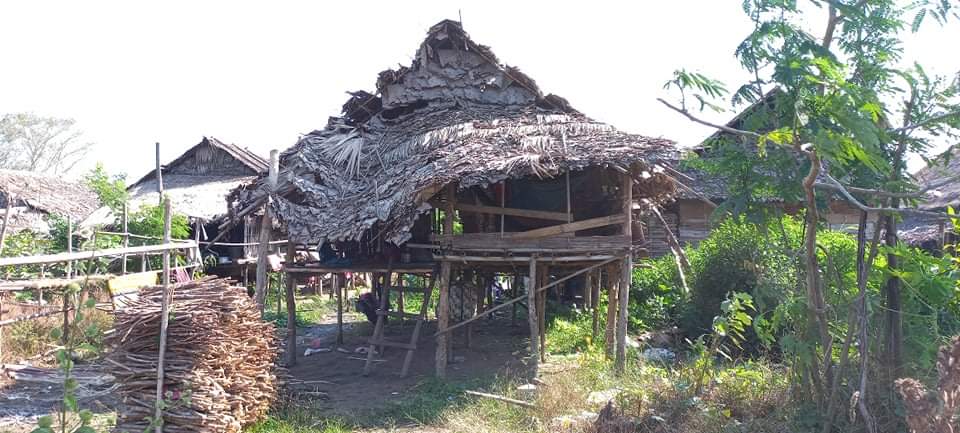Large swathes of Myanmar, in particular sites of displacement and surrounding communities, hard-to-reach areas and Non-Government Controlled Areas, are struggling to meet the basic needs of people residing in them. The combined impact of COVID-19, a fresh political crisis and renewed armed conflict has been devastating.
Since 2020, millions of migrant workers have returned to, or passed through, Kayin State after leaving their jobs and returning home due to the COVID-19 pandemic. Yet this has made Kayin State itself a high risk for COVID-19 transmission. Moreover, on 1 February 2021, the Tatmadaw (the armed forces of Myanmar) arrested civilian government leaders and announced a one-year ‘state of emergency’ (which has since been extended). The subsequent political crisis has only served to deepen the recession triggered by the pandemic.
Daw Thinzar (all names in this article have been changed), a returnee from an internally displaced person (IDP) camp, said: “I have no regular income due to the pandemic and political crisis in Myanmar… I cannot even find odd jobs to support my family.” Some returnee migrants wish to open businesses but they have no access to start-up finance or skills training opportunities. Women in particular say that if they could obtain a reasonable stable income then they would not want to return to countries such as Thailand for work.
Meanwhile various villages in Kayin State have faced indiscriminate mortar shelling and airstrikes conducted by the Tatmadaw. This has resulted in death and displacement, as well as damaging already poor basic services. A humanitarian crisis has unfolded, with water, sanitation, food and shelter the most immediate priorities, along with basic protection for civilians. Vulnerable groups, including women and girls, people with disabilities, ethnic minorities, and sexual and gender minorities, are especially negatively affected by the violence.
Daw Htoo, a woman living in Myaing Gyi Ngu IDP camp, said:
“Our current settlement became our destination as I could not move anywhere else since I moved here in 2016. I live in Moe Aye Myaing [one of the wards within Myaing Gyi Ngu camp] with six family members. The monks provide temporary shelter… and food. I have no job and no earnings. I miss my village every day… I really want to go home, but I’m afraid of mines because numerous neighbours were killed by exploding mines in my village.”
The events of the past two years have put women and girls, particularly those that face exclusion due to other factors such as disability and ethnicity, throughout Myanmar at tremendous risk. Social norms and related social practices affect men and women through every aspect of their lives, from the most deeply personal (e.g. one’s sense of self confidence) to the practical (e.g. how paid and unpaid work are valued). There is a real prospect that three crises – COVID-19, authoritarianism and armed conflict – will dismantle any progress that has been made in terms of gender equality and women’s empowerment, especially in the most marginalised parts of the country such as Kayin State.
Angela Aung (not their real name) is involved in the Protracted Displacement Economies (PDE) project. PDE is a project funded by UK Research and Innovation through the Global Challenges Research Fund (grant reference number ES/T004509/1).
